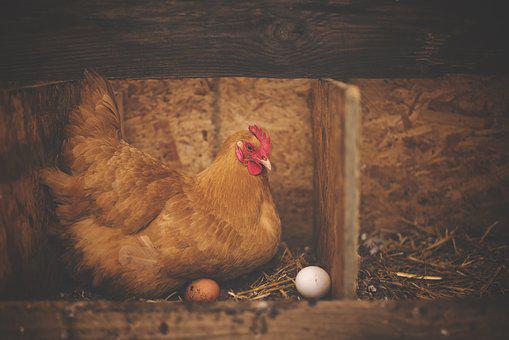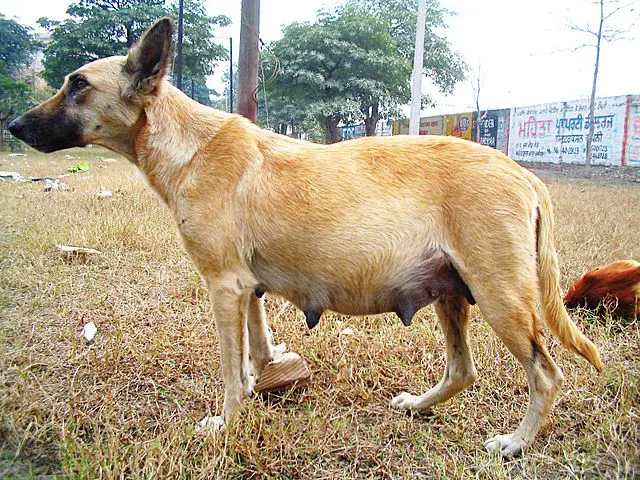First and first, do people genuinely ask this question? We laughed a little at first—who wouldn’t? But it turns out that there’s a reason this question is a classic. It’s a question that’s been asked for thousands of years, and it’s rich with history. “It’s a charming problem because you want to reject it as a foolish question,” says Roy Sorensen, a philosopher at Washington University in St. Louis who has written on the topic. “On contemplation, you can see that we’re impatient with it, but it’s not a stupid question.”
First and foremost, let’s address the scientific response. In general, eggs predate the existence of hens. Dinosaur eggs and embryos are roughly 190 million years old, according to the earliest remains. The oldest generally recognized bird fossils, Archaeopteryx, date from roughly 150 million years ago, implying that birds arrived after eggs in general.
When it comes to hens and the exact eggs from which they originate, the same answer applies—the egg comes first. Somewhere down the line, this almost-chicken creature hatched an egg harboring a bird whose genetic composition was totally chicken due to a tiny mutation. Given the gradual nature of genetic alterations, pinpointing the specific dividing line is nearly difficult, although chickens were domesticated around 7,000 years ago, deviating from their wild counterparts. Bill Nye concurred with Neil deGrasse Tyson’s endorsement of the not-quite-chicken bird depositing the egg that would grow up to be a chicken.
Chickens Come Home to Roost
A group of scientists reported a few years ago that a protein necessary for the development of chicken egg shells could only be detected in chicken ovaries. That data was frequently used as proof that the chicken was the first, but even the scientists who conducted the study weren’t convinced, with one calling the question “interesting but worthless.” (An experiment by the Oxford English Dictionary to see which term has a longer history revealed no definitive results.)
The genesis of the question—and what its development (no pun intended) indicates about the history of human thought—might be the more fascinating aspect. It all begins in Ancient Greece. According to Sorensen, Aristotle was certainly thinking about this sort of dilemma, but he managed to avoid answering it by claiming that both went infinitely backward and had always existed. “There could not have been a first egg to give a beginning to birds, or there would have been a first bird to give a beginning to eggs; for a bird comes from an egg,” according to an 1825 English translation of François Fénelon’s book on ancient thinkers.
Plutarch is credited with coining the phrase “Whether the Hen or the Egg Came First,” claiming that the “small dilemma” “shook the big and heavy matter (whether the universe had a beginning).” People “jest about what you think to be a triviality, in inquiring whether the hen came first from the egg or the egg from the hen,” said one Roman scholar, Macrobius, in the fifth century.
According to Sorensen, Christian thinkers such as Augustine and St. Thomas Aquinas spent time pondering how to reconcile the wonder and sage thinking of Greek philosophers with the certainty of their theological worldview. After all, if the question were to be answered only on the basis of Genesis, the chicken would come first. “I pass over now that trite and thus otiose rather than curious question, whether the hen exists before the egg or vice versa,” the Italian natural historian Ulysse Aldrovandi wrote a few hundred years later, revealing that the question was well-known but settled in the year 1600: “I pass over now that trite and thus otiose rather than curious question, whether the hen exists before the egg or vice versa.” The religious writings claim that the hen was the first to exist. Animals were created at the beginning of time, according to these writings, hence the hen did not emerge from an egg but from nothing.”
However, by the 18th century, things had changed. Denis Diderot, a key figure in the Enlightenment and the editor of the Encyclopédie, did not view the issue as straightforward. In 1769, he stated, “If the matter of the primacy of the egg over the chicken or of the chicken over the egg embarrasses you, it is because you believe that creatures were originally what they are now.” “What a blunder!” Diderot believed that an animal’s history was as unpredictable as its future. Sorensen points out that Charles Darwin’s On the Origin of Species, published in 1859, further compounded the matter.
The theory of evolution proved that Diderot was on the right track in some aspects, but its emphasis on slow change (and Gregor Mendel’s genetic inheritance principles) created a mix of certainty and mystery that persists to this day: the egg must have arrived first, but no one knows when. It’s difficult to tell one species from from another since there’s a lot of overlap as species evolve. Despite the fact that science has mostly addressed the issue, philosophers continue to debate it. Clearly, the issue remains a fertile beginning place for a variety of contemplations, including this one.






